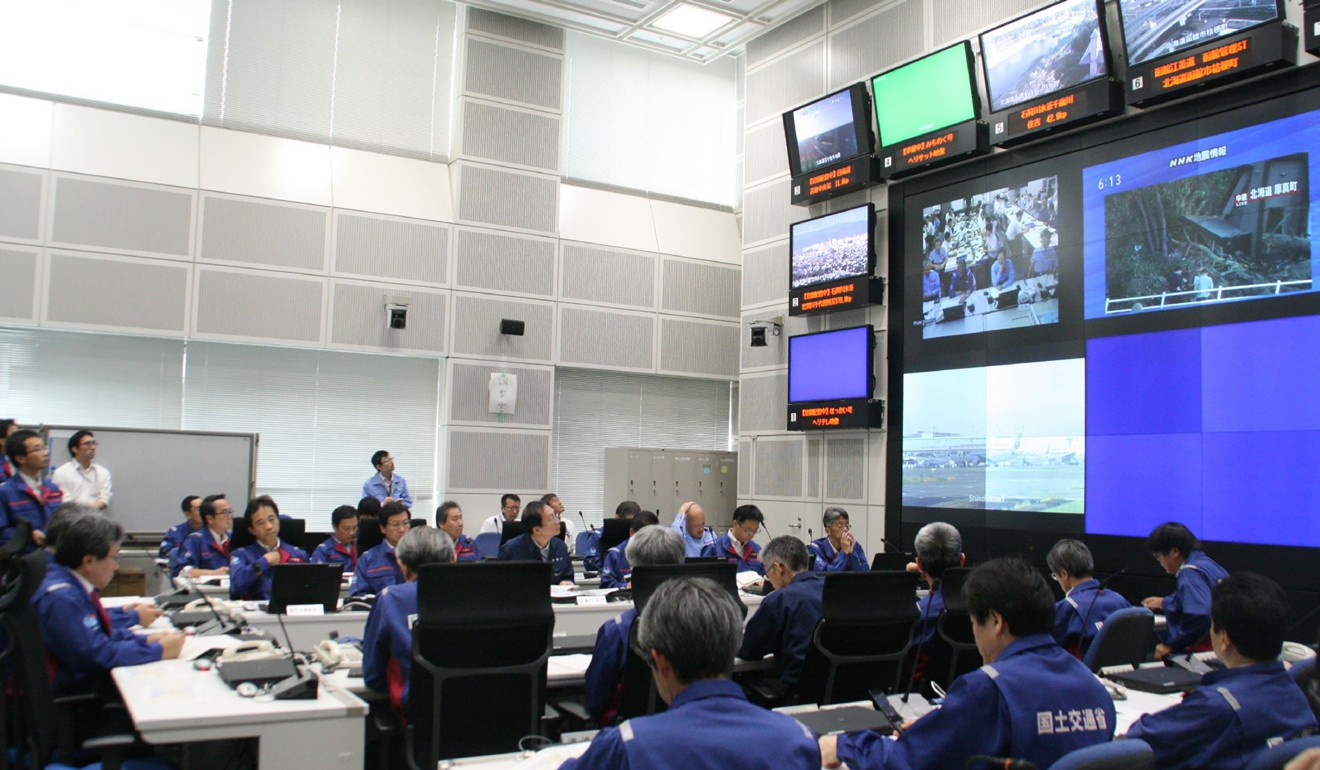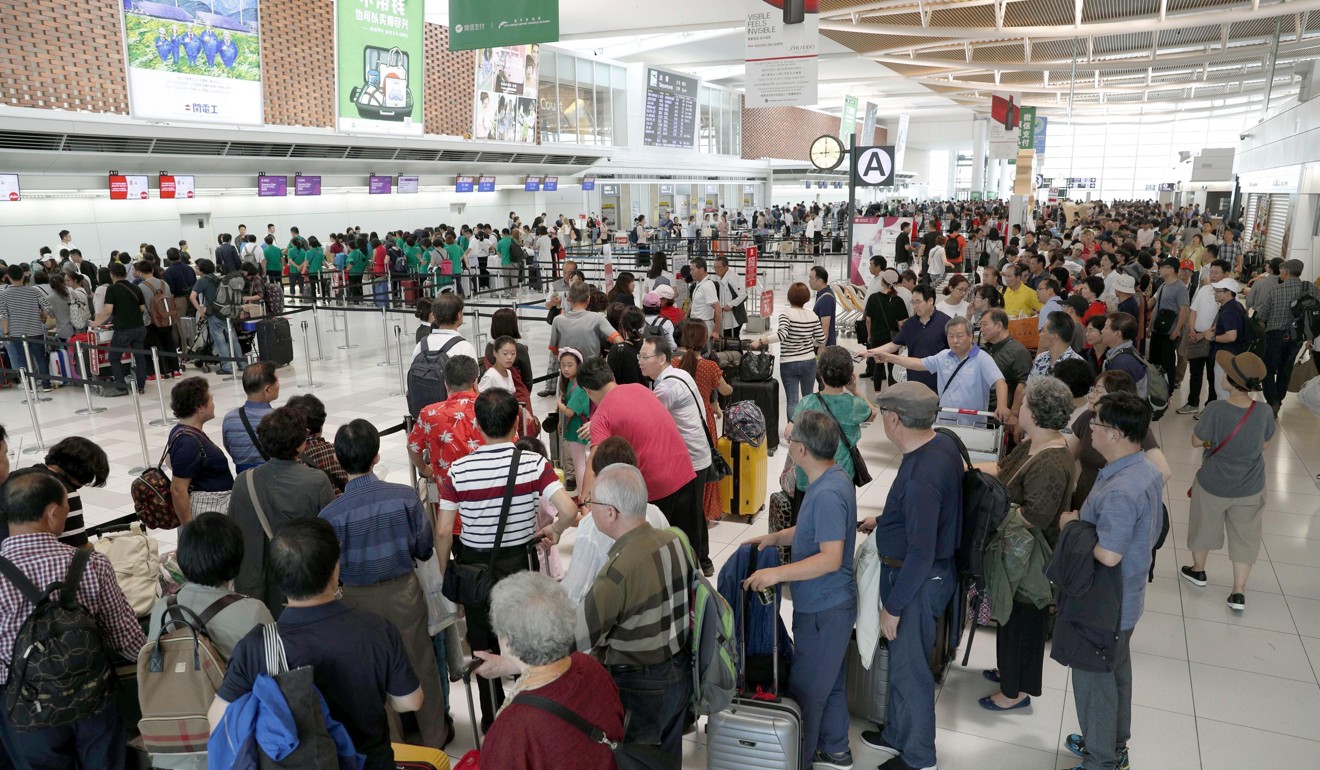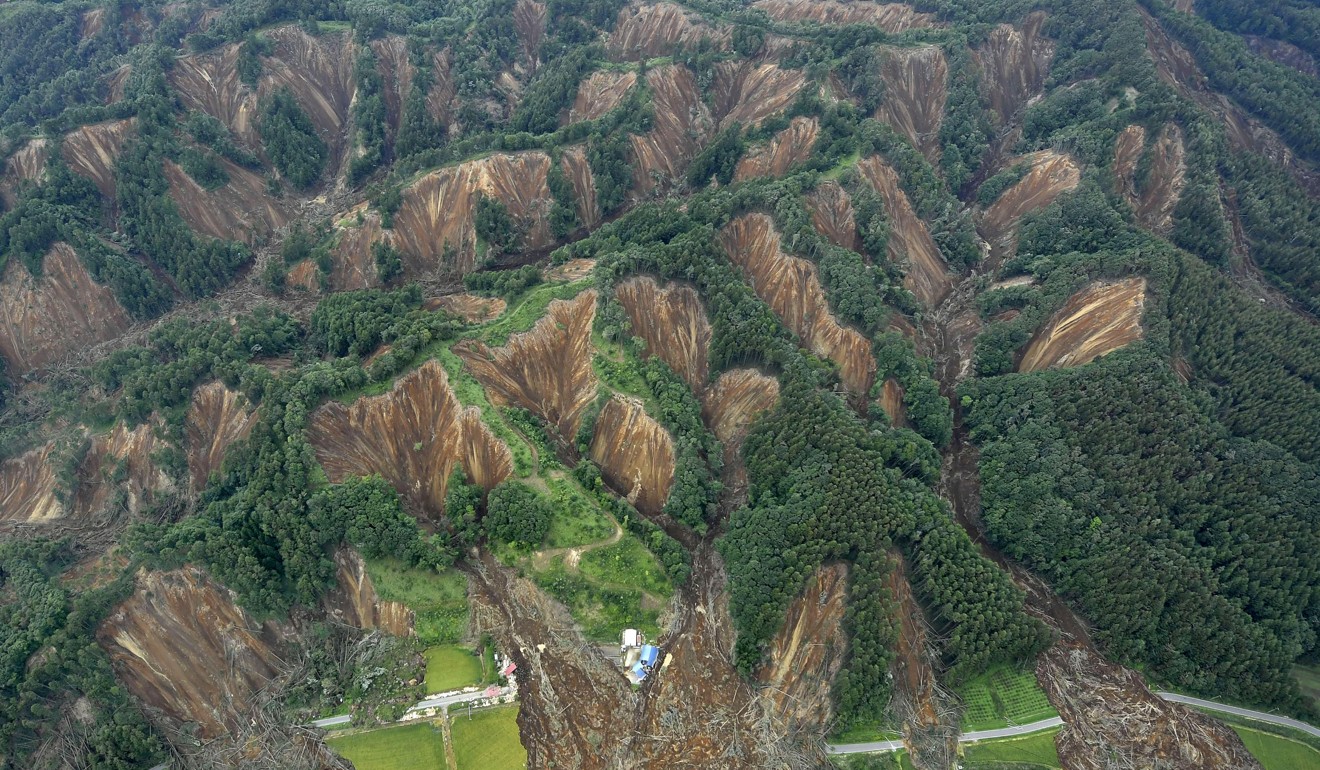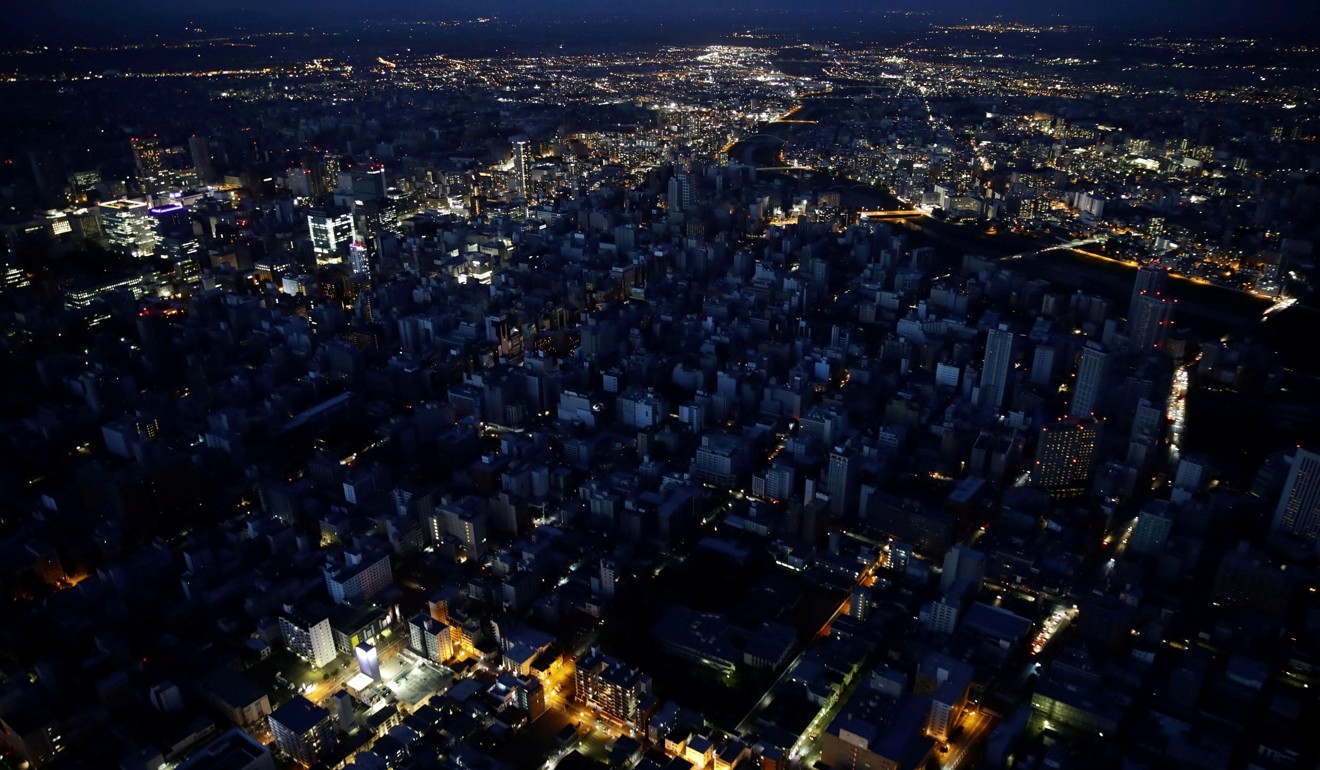
Hokkaido quake reveals how unprepared Japan is to help foreigners during disasters
Half of all tourists to the country are from China, but some complained there was no information in Chinese following the Hokkaido earthquake
The powerful earthquake that hit Japan’s popular tourist destination of Hokkaido has highlighted a lack of preparedness to provide information to foreign visitors during disasters.
With the number of tourists expected to approach 40 million by the 2020 Tokyo Olympics, the government is introducing multilingual emergency information apps and other tools, but a lot more work is needed to train people who can provide direct help to non-Japanese in a crisis, experts say.

In 2017, nearly 28.7 million people visited Japan, according to the Japan National Tourism Organisation.
Roughly half of them were Chinese – 7.3 million from the mainland, 4.5 million from Taiwan and 2.2 million from Hong Kong. Yet information written in Chinese is lacking, say some tourists.
Taiwanese ‘evacuated from typhoon only if they considered themselves Chinese’
A Chinese man said most information posted on signs in stations and in other public areas was in Japanese and English. “I wish there had been information posted in Chinese, too,” he said.
He was among many foreign visitors looking for information following the magnitude 6.7 quake that caused a blackout and transport disruptions in Hokkaido on September 6.

Hokkaido gets close to 2.8 million foreign visitors a year. Many tourists could be seen wandering aimlessly in parks in Sapporo, the prefecture’s capital, or stuck at airports, worried and frustrated because they were unable to obtain crucial information due to the language barrier.
Hongkongers stranded in Japan try to find way home after deadly quake
The Sapporo government set up a special evacuation centre on the afternoon of the quake, dispatching staff there who could speak English, among other languages. Hokkaido’s local government also started a phone hotline for foreigners in English, Chinese and Korean.

But an official in charge admitted: “We were so busy with the response effort at the evacuation centre that we were unable to supply information in other languages.”
The disaster-prone nation faces an uphill battle as it tries to better serve non-Japanese speakers in emergencies like earthquakes and typhoons. As a part of this effort, the Japan Tourism Agency has created guidelines on how to deal with foreign visitors in the initial stage of a disaster.
It urges tour and hotel services to respond swiftly to foreigners to prevent panic as many of them will be unable to communicate in Japanese and may have no experience of coping in a disaster.
An app, called “Safety tips”, delivers an earthquake early warning, and other disaster alerts to phones and other devices in English, Chinese and Korean. The agency has been calling on foreign visitors to download the app.
In Sapporo, still reeling from the impact of the quake and blackout, an official said: “We need to consider the worst case scenario and act in cooperation with travel agencies and lodging facilities to jointly provide information [to foreign visitors].”

Shizuyo Yoshitomi, a professor at Nagoya University of Foreign Studies, said administrative authorities and hotels must work together to determine the whereabouts of foreigners immediately after a disaster occurs.
“They must keep in mind that they should not exclude anyone and they should strengthen the ties with people who do not understand their language,” she said.

